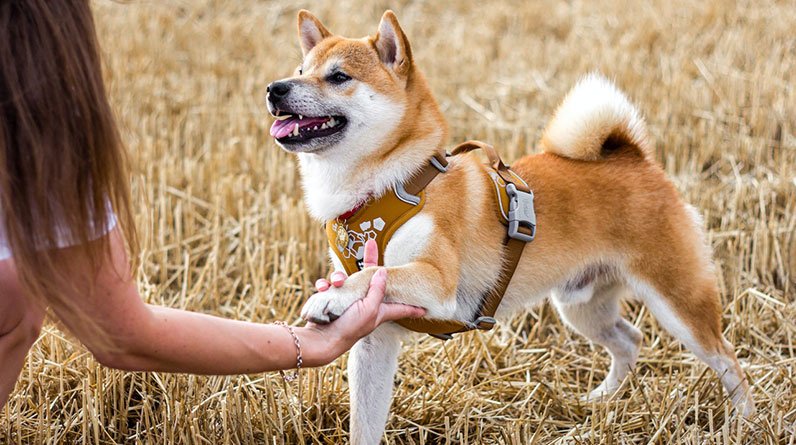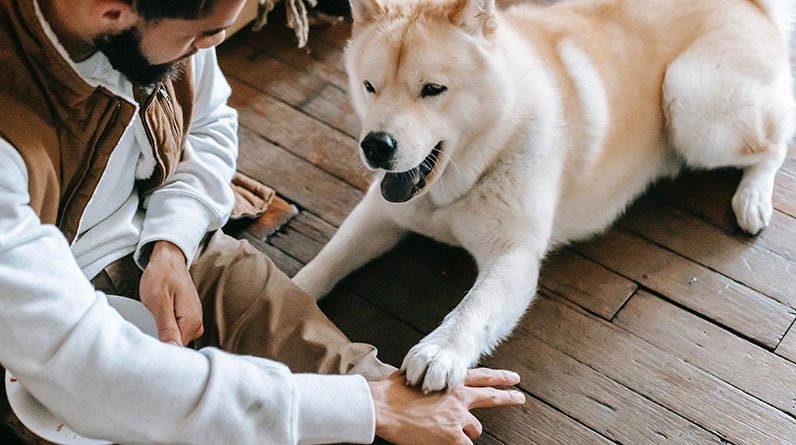
How to Socialize Your Puppy
Exposing your puppy to new people, places, objects, and animals in a positive way is essential to their socialization. The more positive interactions they have, the less likely they will be to be afraid of them later on.
The best time to start socializing your puppy is between three and 14 weeks of age. This is when they are most open to learning and thirsty for new experiences.
1. Socialize at Home
When it comes to socializing your puppy, there are many things you can do at home. It is important to expose them to different things so that they are able to feel safe and comfortable in their surroundings.
This includes introducing them to vacuum cleaners, doorbells, people wearing hats, and other household pets. It is also crucial to show them that it is not scary to be around these things.
It is important to keep these interactions short and easy on your pup. This way, they will not get overwhelmed.
A 10-minute walk in the neighborhood is a good socialization opportunity for puppies to encounter all kinds of new sights and sounds, including cars, other animals, and even birds and squirrels.
You should also be sure to offer them a treat for every new interaction you facilitate. This will help to reinforce that all things are not scary and that positive interactions lead to nice things happening.
It is also important to seek out other dogs for your puppy to socialize with. This will help them become more tolerant of other dogs and prevent fear aggression in the future.
2. Socialize in Public
Puppies are incredibly sensitive to the interactions they have with people and other animals, so it’s vital that you take them on regular socializing walks around your neighborhood. This will help them develop the trust and understanding they’ll need to have positive interactions with all kinds of different people and pets in their life.
You can also go out to restaurants, the mall, or other public places to get your puppy used to the sights, sounds, smells, and feel of different environments. During these short trips, be sure to keep them on a leash so they don’t feel threatened or attacked by a stranger or dog.
Be careful to only introduce your puppy to new situations and people when they are not too hyper or exhausted from playing with you. If you force your puppy into an interaction when they are tired, they may become stressed or feel threatened.
If your puppy is unsure about the situation, they will often display signs like tail tucked, ears back, and wide eyes. They’ll also be more likely to yawn or cling to you.
It’s important to be able to read your puppy’s body language and know what to do when they are hesitant or fearful. If your puppy is yawning, tense, or turning their head away, try to leave the area as soon as possible. You can add distance or decrease the intensity of the exposure if necessary to allow them time to settle and acclimate to the situation.
3. Socialize in the Car
There are a number of things you can do to help your puppy get used to traveling in the car. These include introducing them to cars, taking them on short trips, and using positive interactions to build up their confidence.
You will want to take your time with this, ensuring you expose them to the car gradually, using plenty of praise and treats. As you progress through this, they will feel more confident and comfortable in the car, so it should not be long before your puppy is able to travel in it without fuss.
When your puppy is in the car, it is a good idea to keep them restrained with a dog carrier, as this will help them be less of a distraction for other passengers and the driver. You can start this as early as possible, but it will take some time for your puppy to become comfortable with the carrier.
If your puppy is nervous about being in a vehicle, you can also introduce them to a stationary car before you start traveling. This will help them acclimatize to the noises of a moving vehicle, and allow them to calm down before you jump in the car.
When socializing your puppy, it is important to use positive interactions as they will make a huge difference to their behavior when they are grown up. This can include letting your puppy approach people and animals at their own pace, being gentle, and showing kindness to those around them.
4. Socialize in the Park
Puppies should be exposed to a wide range of new people, animals, and situations. Ideally, this will happen as early in life as possible to give them a positive, confident experience and prepare them for their future lives with you.
For example, puppies should meet people of all races, sizes, and ages, as well as those with hats, sunglasses, or who are physically challenged. This can be done in a variety of ways, from pet stores to social events such as dog shows or adoption fairs.
To do this, you should slowly introduce your puppy to individuals or small groups of people, and then work up to larger crowds. This can be done in a variety of ways, such as at your house or at the park.
It is important that you do this in a way that is as stress-free as possible so that your puppy learns to be comfortable with the experience. It is also helpful to be aware of your puppy’s reaction and remove them from the situation if they are showing signs of fear, anxiety, or reactivity.
For your first visit to the park, try going for a short off-leash lap around the inside of the park so that you and your dog can get to know each other. If everything goes well, you can plan to stay for longer next time.
5. Socialize at the Vet
It’s important to socialize your puppy as early as possible, especially if they’re going to have frequent visits to the vet or groomer. This can help your pet feel safe and comfortable with the experience of being handled.
A good way to start is by handling your puppy’s paws, ears, and body in different ways. This helps them become familiar with your touch, which can then be used to trim nails, brush their teeth, clean their ears, and give medications if necessary.
Some puppies are naturally more sensitive than others, and it’s important to observe them before attempting to socialize them in new situations. If they’re displaying fear or anxiety, don’t force them to enter the situation; instead, remove them from it and give them lots of praise and treats.
Puppies are most receptive to new experiences during the early months of their lives, which means they’ll have the best chance of developing essential socialization skills. This is why many experts recommend beginning puppy socialization when they’re puppies, and not waiting until their vaccination series is completed.
Getting your puppy out into the world early in their lives is crucial to preventing behavioral problems later in life, such as separation anxiety and leash reactivity. It’s also a great way to help your dog be a happy, well-adjusted member of society! If you’re not sure where to begin, ask your veterinarian for recommendations.
6. Socialize in the Pet Store
Again, positive interactions are essential for your puppy’s mental health. These include exposure to other animals, a variety of environments, and people from all walks of life. Appropriate socialization can reduce the risk of depression, anxiety, and dementia in the future.
In addition, it is important to remember that your puppy is very sensitive to your body language. If they are yawning, clinging to you, or turning their head away while you’re socializing with others, they may be feeling anxious or overwhelmed.
Taking your puppy to the pet store is one way to get them used to new people and situations. Be sure to only bring them to places where you know they’ll be able to meet other pets, especially other puppies.
You can also encourage them to be more friendly toward people by giving them a treat when they interact with each person. This will help them associate the interaction with something positive and make them less likely to shy away from people and their hands.
You should introduce your puppy to other dogs at a very young age when they are more receptive to new experiences. Getting your puppy used to meeting other canines and allowing them to sniff each other will help them develop a strong social bond between the two of them.





